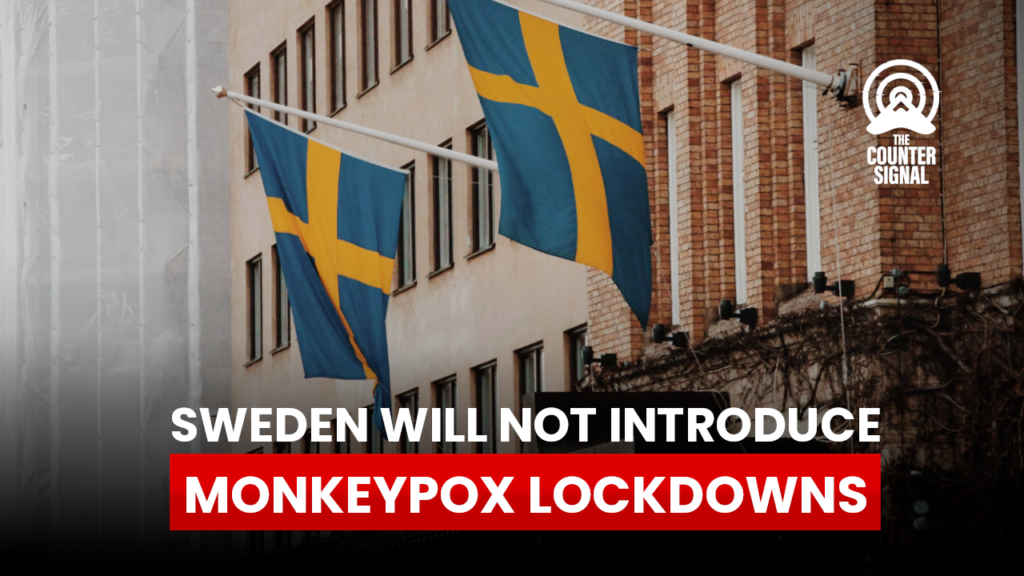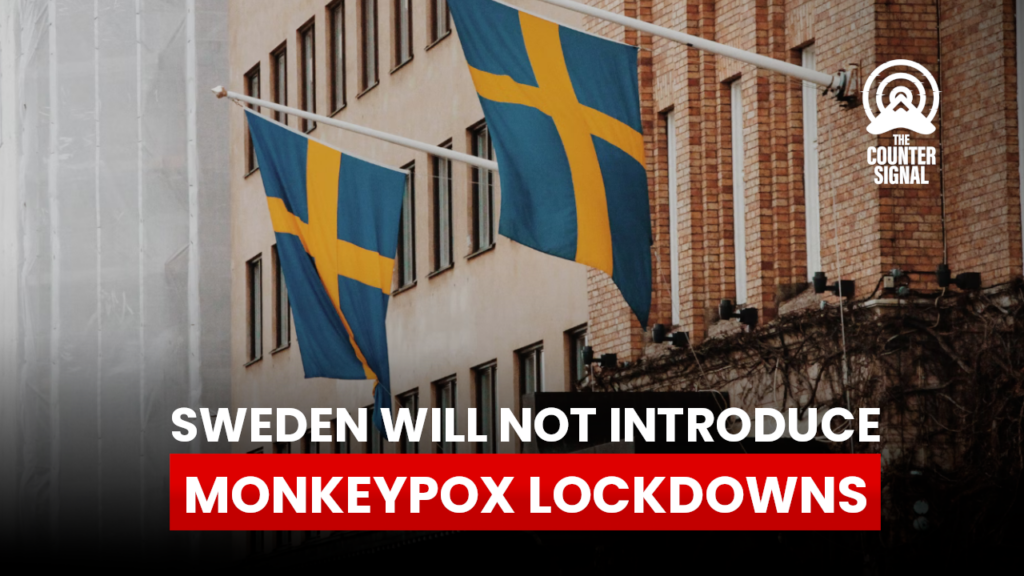Government officials in Sweden have said there’s “no reason to tie monkeypox to COVID-19” and that “there will be no limits or restrictions.”

Much like with potential COVID restrictions, Sweden is already positioning itself to remain one of the freest Western nations in the world, outright stating that it will not lock its citizens down over a few cases of monkeypox.
“There is no reason to tie monkeypox to COVID-19 and everything that makes people think of, such as fear of the illness and societal measures to control it,” said Health Minister Lena Hallengren.
“There will be no limits or restrictions on how we live due to monkeypox. There are no plans to do that.”
Umea University epidemiologist Fredrik Elgh shares Hallengren’s view, saying that it’s unlikely any COVID-like restrictions will be needed for monkeypox and that the people have no reason to be worried.
“The general public do not need to be worried about monkeypox,” Elgh said. “But my belief and hope is that this will not be a pandemic like corona. The most likely scenario is that as long as we contact trace properly, it will ebb out.”
However, Sweden has reclassified monkeypox as “an illness representing a danger to society.” This change in classification is primarily being done so the country can do contact tracing — which likely will not be needed.
This response differs entirely from nearby Belgium, which already announced that those who contract monkeypox would be forced to quarantine for 21 days.
As previously reported by The Counter Signal, Sweden’s refusal to lock down citizens or businesses during the pandemic resulted in fewer excess COVID deaths in Sweden than what the average country experienced.
Indeed, unlike most countries, Sweden’s health authorities decided to keep businesses open and allowed citizens to assume their own risks.
According to Carl Heneghan, a professor at the University of Oxford in evidence-based medicine, Sweden’s decision “not to interrupt transmission entirely but to reduce the pandemic’s health impact has largely been vindicated.”
“The strategy in the future should be to trust the public in the face of escalating risks to their health to make the right choices,” he said.
According to data released by the WHO, Sweden had 56 excess deaths per 100,000 from 2020 to 2021. However, the average excess deaths per 100,000 for all countries during that period was 96 — almost twice as many excess deaths as Sweden experienced.
Under Angela Merkel’s strict, segregationist COVID policies, Germany had more than double the excess deaths (116) as Sweden.












